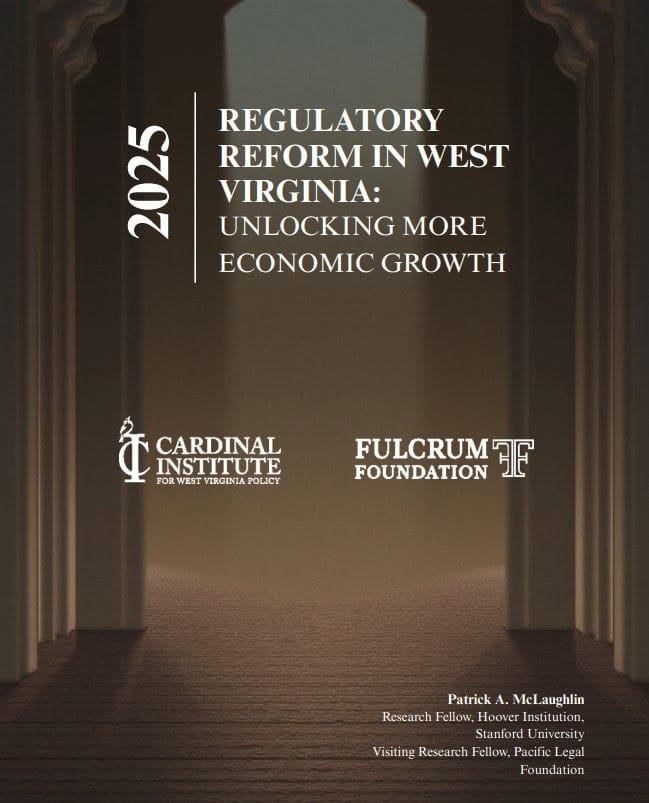
Rising Gas Prices Are the Result of Bad Energy Policy
Cardinal Team
Gas Prices Are Rising Across the Nation
As of May 19th, all 50 states had a retail price for gas over $4 a gallon. According to AAA, Oklahoma provided the cheapest gas to Americans at $4.03 per gallon, while the most expensive gas, averaging $6.06 per gallon, was found in California. The rising cost of gas has created an additional burden for families attempting to recover from the financial hardship of the COVID-19 pandemic.
At the start of President Biden’s term, he delivered on campaign promises. On his first day in office, he terminated the Keystone pipeline project. Shortly after, he placed a moratorium on oil leasing on federal land. This was later found to be illegal.
The Biden Administration acted swiftly, hoping that the nation would become less reliant on fossil fuels. Yet, government-mandated stoppage of fossil fuel use increases price for consumers, fails to provide cleaner methods for energy production, and creates unhealthy dependency on predatory nations.
Bad Energy Policy Increases Costs
Restrictions on energy production are directly tied to rising gas prices. In January, the Biden Administration ceased production of three offshore oil and gas leases and intends to allow the nationwide offshore drilling program to expire this month. Such constraints on energy production, aimed to eliminate the use of fossil fuels, alter the available resources and create inflated prices in response to an artificially low supply. In order to alleviate financial stressors for Americans, it is essential to unleash the power of an open market.
Forced Elimination of Fossil-Fuels Fails to Provide Affordable Alternatives – the Free-Market Can Fix This!
In 2016, the Center for Sustainable Energy released a study calling natural gas a “bridge fuel,” a “cheap, plentiful, versatile and comparatively clean” energy source to transition to a low-carbon environment. Shifts from coal-based energy to natural gas successfully eliminated carbon emissions by 33% from 2005 to 2019. In fact, the most reliable research shows switching from coal to natural gas has reduced the effects of climate change. Today, however, most environmental groups have discarded support for this energy alternative.
Many climate activists believe the nation is obsessed with fossil fuels, but statistics don’t bear the fruit of the claim. In 1996, fossil fuels made up 94% of energy consumption in the U.S. compared to 80% today. Yes, the U.S. is still heavily reliant on the oil and gas industry. However, it has continued to make headway toward alternative energy—motivated by the free market.
A study published in 2021 by the World Trade Organization and the International Renewable Energy Agency researched how the free-market can better support companies attempting to create reliable renewable energy.
The report stresses: “Keeping markets open is critically important to ensure that all countries can benefit from solar photovoltaic (PV) technologies, which constitute a pillar of the low-carbon, sustainable energy system needed to help achieve the goals of the Paris Agreement and to fulfill the United Nations’ Sustainable Development Goals.”
Heavy Reliance on Foreign Energy Sources is Dangerous
With continuous regulation restricting the innovation and production of fossil fuels, we must look outside the U.S. to meet fuel needs. Last year, according to the White House, the U.S. imported “nearly 700,000 barrels per day of crude oil and refined petroleum products from Russia.” With continued acts of aggression against ally nations by the Russian government, the Biden Administration has banned “the import of Russian oil, liquefied natural gas, and coal to the United States” to “deprive President Putin of the economic resources he uses to continue his needless war of choice.” However, the administration has not improved domestic production to ease the stress on the market created by the loss of supply. The move to create sanctions against violence, while admirable, has resulted in higher inflation and slower economic growth.
After years of extensive limits on energy production in the U.S., we’ve realized the importance of prioritizing energy independence.
It’s Time to Rethink American Energy Policy
Time and time again, economists have witnessed the positive impact of progressive innovation through a free-market economy. It is critical for the market’s success to allow technological advancements to occur naturally, fail, and succeed. Regulation, in contrast, initiates little innovation and forces compliance.
Capitalism, by design, incentivizes individuals and corporations to develop efficient resource use and production to fulfill the needs of society. Through free and open markets, entrepreneurs have the liberty to experiment and uncover ways to provide green energy.
Contrary to the government, capitalism’s answer to resource shortages is through demand and competition. Innovation provides an opportunity for alternatives. In the meantime, it’s best to walk back bans on energy production in the United States. This will provide relief at the pump and reignite an entrepreneurial spirit for clean energy.
Jessica Dobrinsky is a Policy Analyst for the Cardinal Institute for West Virginia Policy.







